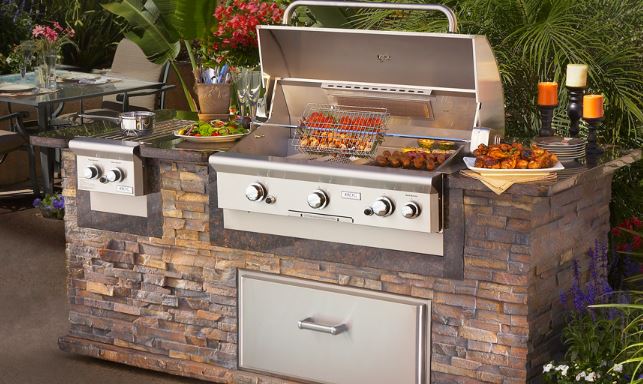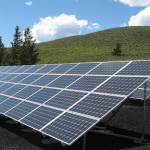Natural Gas Grill vs Propane: Which One is Better?

Introduction
In the world of outdoor cooking, one of the most common debates is between natural gas grills and propane grills. Both options have their merits and drawbacks, and choosing the right one for your needs can greatly enhance your grilling experience. In this article, we will delve into the differences between natural gas and propane grills, examining their advantages, disadvantages, and overall performance. So, if you’re wondering which type of grill is better suited for your backyard cookouts, keep reading to make an informed decision.
Natural Gas Grill vs Propane: Exploring the Key Factors
1. Convenience: Ease of Use and Accessibility
When it comes to convenience, propane grills take the lead. Propane tanks are widely available and can be easily purchased or exchanged at local hardware stores, making them accessible to anyone. Additionally, propane grills offer portability, allowing you to take your grill on camping trips or tailgating adventures.
On the other hand, natural gas grills require a fixed gas line connection, which limits their mobility. They are typically installed in permanent outdoor kitchen setups or connected to an existing natural gas supply in your home. While this setup provides a constant fuel source, it restricts the flexibility of moving the grill around.
2. Cost-effectiveness: Initial Investment and Operational Expenses
In terms of initial investment, natural gas grills often require a higher upfront cost compared to propane grills. The installation of a gas line or conversion kit can be expensive, especially if you don’t already have a natural gas hookup. However, over time, natural gas grills tend to be more cost-effective. Natural gas is generally cheaper than propane, resulting in lower operational expenses in the long run. Propane, being a bottled fuel, is subject to price fluctuations, and refilling or exchanging tanks can add up over time.
3. Environmental Impact: Cleanliness and Sustainability
For eco-conscious grillers, natural gas grills offer a more environmentally friendly option. Natural gas is a cleaner-burning fuel compared to propane, emitting fewer greenhouse gases and pollutants. It is a fossil fuel, but its combustion produces lower carbon dioxide (CO2) emissions, which contributes to reducing your carbon footprint.
Propane, although not as clean as natural gas, is still a cleaner-burning fuel compared to other options like charcoal. It produces less soot and smoke, making it a more sustainable choice than traditional charcoal grills.
4. Heat Output and Temperature Control
When it comes to heat output, both natural gas and propane grills provide ample firepower to cook your favorite dishes. However, propane grills tend to generate higher heat levels compared to natural gas grills. This higher heat output can be advantageous for achieving sear marks on steaks or quickly cooking large cuts of meat.
Temperature control is crucial for grilling enthusiasts who enjoy precise cooking. Natural gas grills typically offer better temperature control, allowing for more accurate adjustments and even heat distribution across the cooking surface. Propane grills may experience temperature fluctuations due to variations in tank pressure, especially when the tank is running low.
5. Maintenance and Safety Considerations
Maintaining your grill is essential for its longevity and optimal performance. In terms of maintenance, both natural gas and propane grills require regular cleaning and upkeep. However, natural gas grills often require less maintenance overall. Since they are connected to a fixed gas line, you don’t have to worry about running out of fuel or replacing empty propane tanks.
When it comes to safety, both types of grills have their own precautions. Propane grills involve handling and storing flammable propane tanks, which should be done with care. Natural gas grills, on the other hand, require professional installation to ensure proper gas line connections and prevent any potential leaks. It is important to have your natural gas grill installed and inspected by a certified professional to ensure safety.
FAQs about Natural Gas Grill vs Propane
- Can I convert my propane grill to natural gas?
- Yes, many propane grills can be converted to natural gas with the use of a conversion kit. It is important to consult your grill manufacturer’s instructions and guidelines before attempting the conversion. It is also recommended to seek professional assistance to ensure a proper and safe conversion.
- Are natural gas grills more expensive to repair?
- Natural gas grills are not necessarily more expensive to repair compared to propane grills. The cost of repairs can vary depending on the specific issue and the brand of the grill. It is advisable to check the warranty and seek authorized service providers for any repairs needed.
- Can I use propane on a natural gas grill or vice versa?
- No, it is not safe to use propane on a natural gas grill or vice versa without the appropriate conversion kit. The fuel requirements and pressure levels are different for each type of grill. Using the wrong fuel can result in poor performance, damage to the grill, and safety hazards.
- Which type of grill is better for large gatherings?
- Propane grills are generally better suited for large gatherings due to their higher heat output. They can accommodate larger quantities of food and cook it more quickly. However, natural gas grills can still be suitable for large gatherings if they offer sufficient cooking space and heat output.
- Can natural gas grills be used indoors?
- Natural gas grills should never be used indoors unless they are specifically designed and certified for indoor use. The combustion of natural gas produces carbon monoxide, which is a toxic gas. It is essential to follow the manufacturer’s guidelines and only use grills in well-ventilated outdoor spaces.
- Can I use a natural gas grill during a power outage?
- Natural gas grills can be used during a power outage as long as the gas supply is not affected. However, it is crucial to ensure the grill has proper ignition mechanisms that don’t rely on electrical power. Always prioritize safety and follow the manufacturer’s instructions.
Conclusion
In the eternal battle of natural gas grills vs propane grills, there is no definitive answer as to which one is better. The choice ultimately depends on your specific needs, preferences, and circumstances. Propane grills offer convenience, portability, and higher heat output, making them ideal for those who prioritize mobility and searing capabilities. Natural gas grills, on the other hand, provide a constant fuel supply, cost savings in the long run, and better temperature control for precise cooking.
Consider factors such as your grilling habits, budget, accessibility to a natural gas supply, and environmental concerns when making your decision. Whichever option you choose, always prioritize safety, proper maintenance, and follow the manufacturer’s guidelines for optimal performance.








